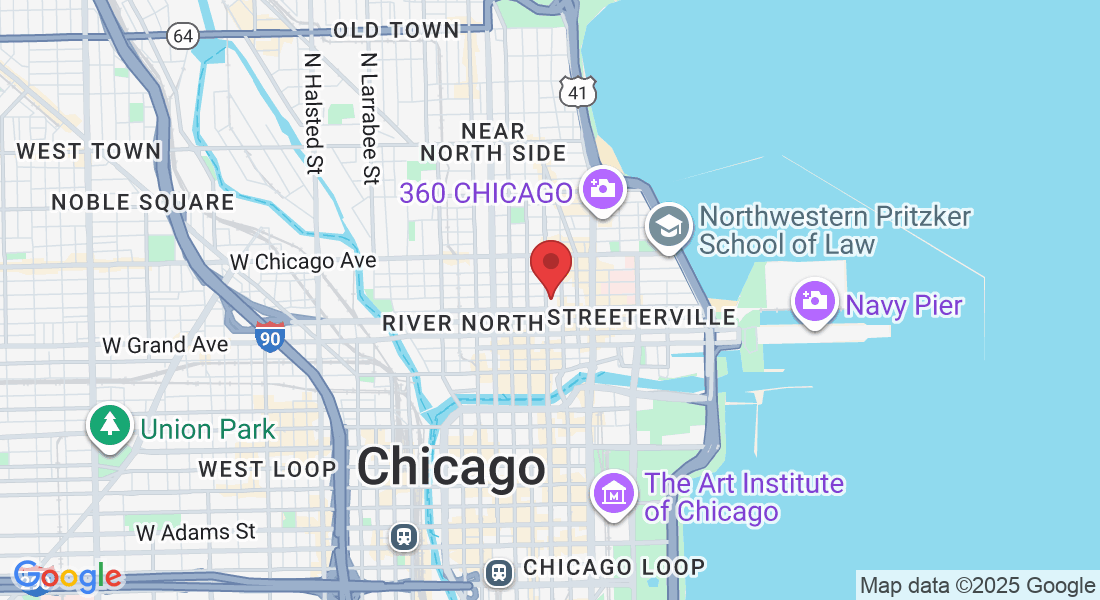![Life Insurance for Colon Cancer Survivors [2022 Guide]](https://images.leadconnectorhq.com/image/f_webp/q_80/r_1200/u_https://storage.googleapis.com/msgsndr/Ot7Yu4y4ddf8J29mwv9d/media/65bc796763440b7661006775.jpeg)
Life Insurance for Colon Cancer Survivors
A person who has been diagnosed with colon cancer and has their tumour removed is considered a survivor. Many survivors are left unsure of what to do after surgery, chemotherapy, and radiation therapies.
They might be worried about how they will pay for future medical care or whether they will eventually require long-term nursing home care. One of our top 5 most popular blog posts addresses life insurance for colon cancer survivors.
We go through eligibility requirements, exclusions, and other information that you should be aware of before deciding which coverage would be the most suitable for your needs.
Can I get Life Insurance With Colon Cancer
Behind lung cancer and marginally ahead of breast cancer, colon cancer is the cancer that causes the second-highest death rate after diagnosis. Furthermore, the key for any cancer patient is early detection.
If and when you can purchase a life insurance policy depends on the stage, grade, and treatment of any colon cancer (colorectal cancer) that you may develop.
All factors relating to this pre-existing ailment that exists RIGHT NOW will be taken into account by life insurance underwriters.
Overall though, it is still possible to obtain life insurance after receiving a colon cancer diagnosis.
Colon Cancer Life Insurance
You must wait at least a year after receiving a colorectal cancer diagnosis before a life insurance provider will consider providing coverage. Because this is a high-risk health condition, they will often wait 1-3 years before trying again.
The ideal situation is usually the norm if therapy was received more than ten years ago and there have been no recurrences. After ten years, though, some insurance providers will view it as superior to the norm.
For instance, up until year 5, you will be charged a flat fee even for stages 0-1. Once more, the underwriters are aware of the extensive treatment necessary and that these are some of the methods for finding colon cancer.
Colonoscopy
Biopsy
Molecular testing of the tumor
Blood tests
CT or CAT scan (Computed tomography)
MRI (Magnetic resonance imaging)
Ultrasound
Chest x-ray
PET-CT scan (Positron emission tomography)
A group of doctors will often evaluate all the findings with you in order to decide on the best course of action. With the main objective of reducing the tumor’s size in preparation for potential surgery for removal, this may be a combination of targeted therapy.
These are the details that the underwriter for the insurance company will want to know and review.
Life Insurance After Colon Cancer Treatment
As previously said, the diagnosis of colorectal cancer, stage, grade, and extent of the cancer’s spread will all affect whether or not life insurance can be successfully purchased.
Above all, the course of treatment will reveal a lot about the cancer’s aggressiveness. The likelihood that you will be insured decreases as cancer becomes more aggressive.
Oncologists will favour a variety of treatment options among these elements with the primary objective of eradicating colon cancer.
These are a few of the therapies that cancer patients will experience:
Surgery
Laparoscopic surgery – Viewing scopes are passed into the abdomen. The incisions are small with shorter recoveries.
Colostomy for rectal cancer – Surgical opening where the colon is connected to the surface area of the abdomen where waste is collected through a pouch.
Radiofrequency ablation (RFA) – In the event that cancer spreads to the liver or any other organ, RFA is used to heat the tumors or freeze them (Cryoablation).
You might need to teach your bowel new habits even after surgery. The third stage and later stages frequently use these methods. It is more difficult to complete these steps when purchasing a conventional life insurance policy.
Radiation therapy
External-beam radiation therapy – When a machine is used to deliver x-rays to beam the cancer area.
Stereotactic radiation therapy – This is commonly used when cancer has spread to the liver or lungs.
Intraoperative radiation therapy – Single dose of high radiation given during surgery
Brachytherapy – Radioactive seeds that are placed inside the body. In most cases, its injected in the liver to treat the colon cancer that spread and surgery is not an option.
Medication Therapies
Chemotherapy – Are drugs used to destroy cancer cells by ending the cancers cells capabilities to grow.
Targeted Therapy – Treatment that targets specific genes, tissue and proteins that allow cancer to grow.
Immunotherapy – Boost the body’s natural defenses to fight the cancer
These are the treatment choices by stage that life insurance companies are most concerned with when assessing the risk of coverage.
Stage 0 Colorectal Cancer and Life Insurance
Typically, a polypectomy, or removal of the polyp during a colonoscopy, is used as treatment. When this happens, the underwriter will be more accommodating.
Stage I Colorectal Cancer and Life insurance
The most frequent kind of treatment is the removal of the malignant tumour and lymph nodes.
Stage II Colorectal Cancer and Life insurance
Typically, surgery comes first, followed nearly invariably by chemotherapy. Adjuvant chemotherapy, as the name implies, aims to eradicate any cancer cells that may still be present.
Stage III Colorectal Cancer and Life Insurance
patients who also received intensive chemotherapy after the surgery. Radiation therapy is occasionally used in conjunction with it.
Stage IV Colorectal Cancer (Metastatic) and Life Insurance
This is referred to as metastatic cancer and occurs when cancer has spread to different body areas. Examples include distant organs like the liver, lungs, and other tissues like the female ovaries.
Plans for treatment typically combine surgery, chemotherapy, immunotherapy, and radiation. Since the cancer is aggressive at this stage, patients have a lesser probability of survival.
Options For Individuals With Stage 4 Colon Cancer
It is a struggle to say the least when a person is diagnosed with stage IV colon cancer. 14% of people survive for five years. The emphasis will shift to quality of life once all other treatments, including clinical trial alternatives, have been considered.
Palliative care can help people who are diagnosed with a terminal illness manage their discomfort and lessen their symptoms.
The only form of life insurance in this situation will be a guaranteed issue policy. There will be a two-year waiting period even though the face amounts are just up to $25,000.
Since a terminal patient might not have two years to live, this is incredibly difficult to accept. All premium payments will be returned with a 10% bonus if the cancer patient dies during the first two years.
Term Life insurance For Colon Cancer Survivors
The timing of purchasing term life insurance following a colon cancer diagnosis will depend on when the course of treatment was completed. The application process will be lengthy because the underwriters will ask for pathology reports as well as all medical records via the APS (Attending Physicians Statement).
If you have early-stage colon cancer, you might, at most, be qualified for a regular rate after 5 years, but you’ll probably be charged a flat extra.
Life Insurance With A Flat Extra
When they view you as a higher risk, insurance firms will charge you a flat extra. In this scenario, the carrier will tack on a $5–$10 flat fee per 1000 passengers.
This is an illustration of the difference between a standard rate and a flat additional for a 55-year-old female with stage 0 colon cancer who received treatment more than two years ago.
Standard versus a fixed additional $5/1000 for two years,
Life Insurance Underwriting For Colon Cancer
The third most prevalent cancer in the world is colorectal cancer. By the age of 40, your chances of developing colon cancer begin to rise. In actuality, it increases notably between 50 and 55.
The following are the elements that will influence the underwriter’s choice:
diagnostic date
The tumor’s stage and grade
the presence of additional cancers in the family
Treatment
the day the procedure was finished
Ongoing Follow-ups
Any repetition
any therapy complications
By giving the life insurance company an APS while applying for life insurance with a history of colon cancer, your application will be processed more quickly.
Here are some small extras you can make, though:
laboratory report
Specifics and timing of the therapy
medical records
comprehensive follow-ups, such as colonoscopies and thorough tumour markers
The underwriter can make a decision if they have all the relevant information, including the diagnosis, last treatment, and follow-ups.
They might take more than 8–10 years since therapy into account for malignancies with higher stage and grade. If the case fits the requirements of standard for at least 10 years, some carriers will issue a potential preferred (John Hancock) policy.
If history meets the criteria for a standard rate for the last five years, standard plus is an option.
The best case scenario is Stage 0 or better.
A typical scenario would be a stage 1 tumour that was treated for 2 full years at a cost of $5/1000.
Colorectal Cancer Questionnaire For Life Insurance
The insurance provider will require you to complete a Colorectal Cancer Questionnaire when you apply for life insurance following colon cancer treatment. It appears to be like this:
Test for Colorectal Cancer
Also, this will help the underwriter decide.
Can You Get Life Insurance On Someone Who Is Dying
Indeed, it is the answer. However, standard life insurance products including term, whole life, and universal life would not be available.
A guaranteed issue life insurance policy is the only choice for protection when a patient is near death.
Conclusion
The chance of having bowel or colorectal cancer is higher in people who have had colon cancer. In order to give your family the security they require in the event that you are diagnosed with another form of this disease, life insurance for colon cancer survivors is a requirement. We can assist you in getting life insurance estimates and discuss how much coverage you would need based on your salary. We can also discuss potential life insurance payout scenarios, such as natural death, suicide, accidental injury, or illness. Let us know if you have any further inquiries so we can assist you!



